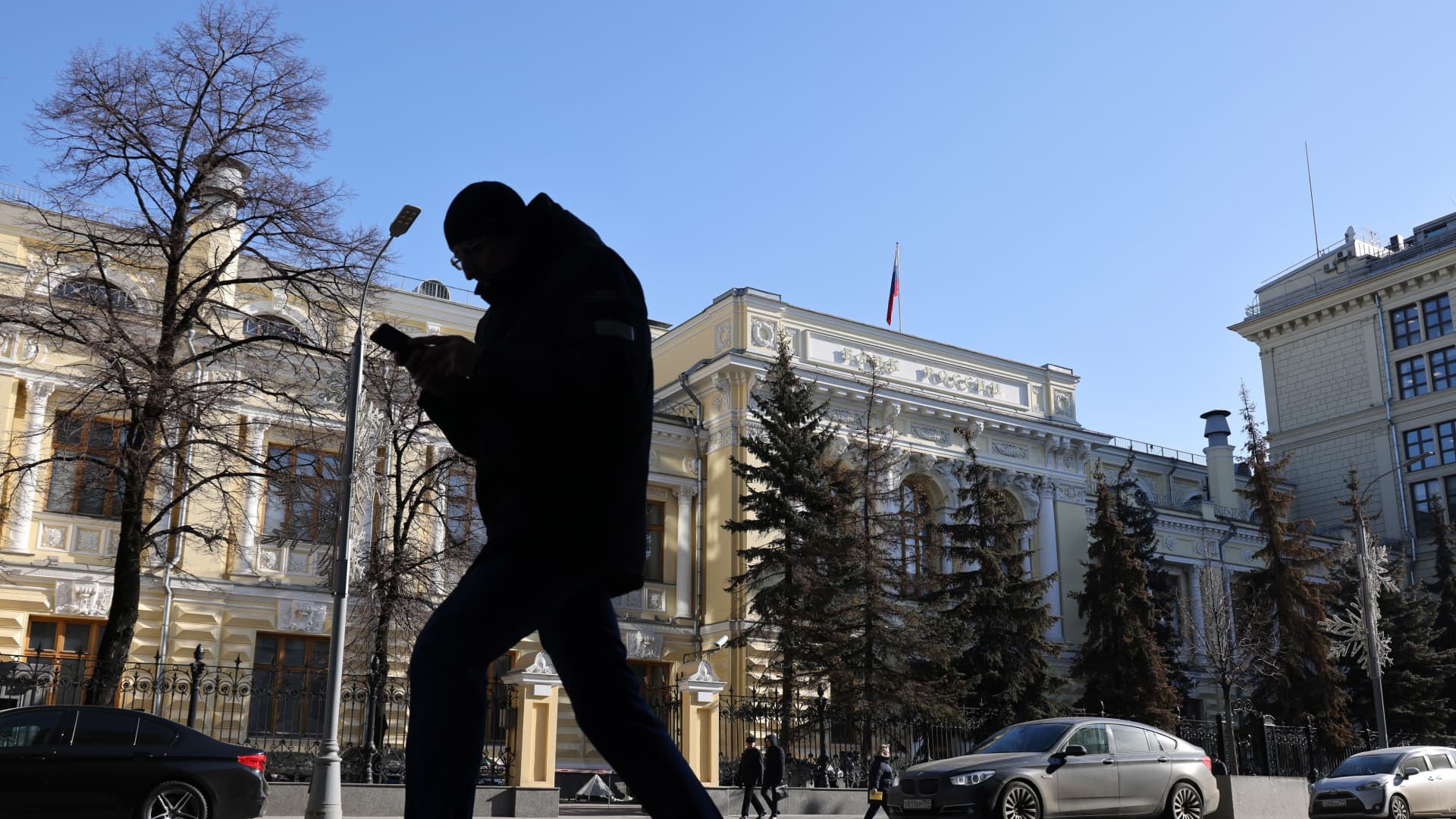
Russia’s central bank on Friday cut its key interest rate by a bigger-than-expected 150 basis points, as the country deals with a strong currency, cooling inflation and a possible recession.
The move takes the key rate to 8% from 9.5%; analysts had expected a rate reduction of 50 basis points, according to a Reuters poll.
“The external environment for the Russian economy remains challenging and continues to significantly constrain economic activity,” the bank said in a statement, while noting that the decline in business activity is slower than it had expected in June.
It is the fifth rate cut by the Central Bank of Russia so far this year after an emergency hike from 9.5% to 20% in late February, following Moscow’s invasion of Ukraine.
In June, it reduced the rate by 150 basis points to 9.5% — the level it was at when the invasion began.
In a statement Friday, the CBR said a further slowdown in inflation was due to both “the influence of a set of one-off factors and the subdued consumer demand.”
Annual inflation fell to 15.9% in June from 17.1% in May, and was last estimated at 15.5% as of July 15.
The bank said its future decision-making on the key rate will be guided by inflation dynamics relative to its target and “economic transformation processes,” as it looks to overhaul its economy to adapt to long-term, severe economic sanctions from Western powers.
The CBR said it will consider the necessity of a further key rate reduction in the second half of 2022, and sees inflation edging down to between 12% and 15% this year, before dropping to 5%-7% in 2023 and returning to its 4% target in 2024.
“The central bank clearly did not feel the need to slow the pace of rate cuts given the easing of inflation risks and the extent of the hit to economic activity,” said Liam Peach, senior emerging markets economist at Capital Economics.
“That said, we think further cuts will be more gradual going forward. Russia’s 12-month ahead inflation-adjusted policy rate is now less than 3%, which is its average over 2016-19.”
Peach suggested that the large moves in rates are now in the rearview mirror and that cuts of 100 basis points or lower are more likely going forward.
“Overall, we now expect the policy rate to end this year at 7.00% (previously 7.50%) and 2023 at 5.50%, which is lower than most expect,” he added.




